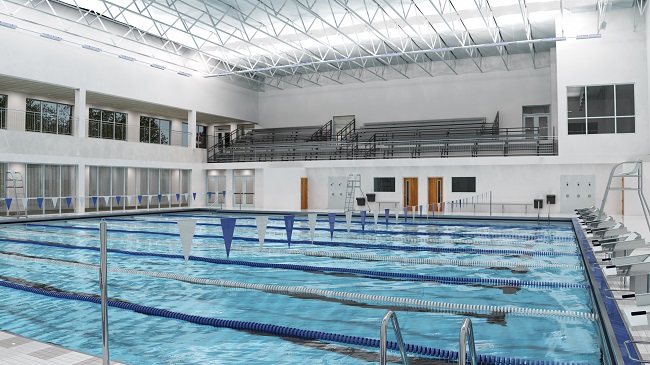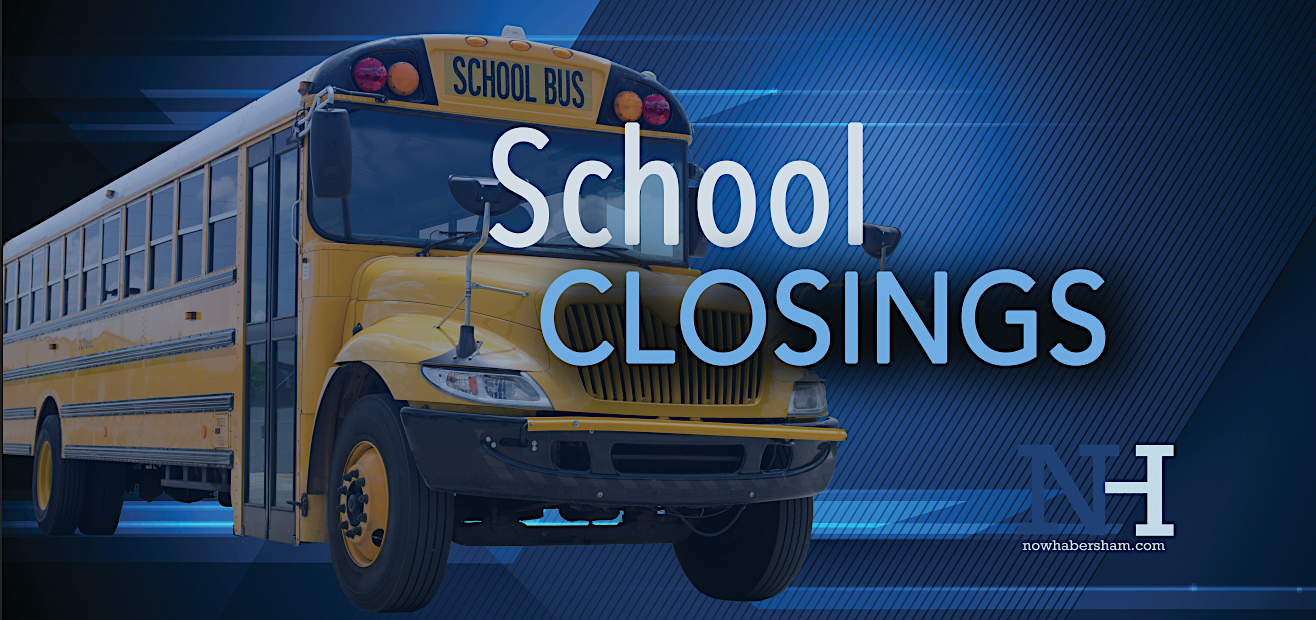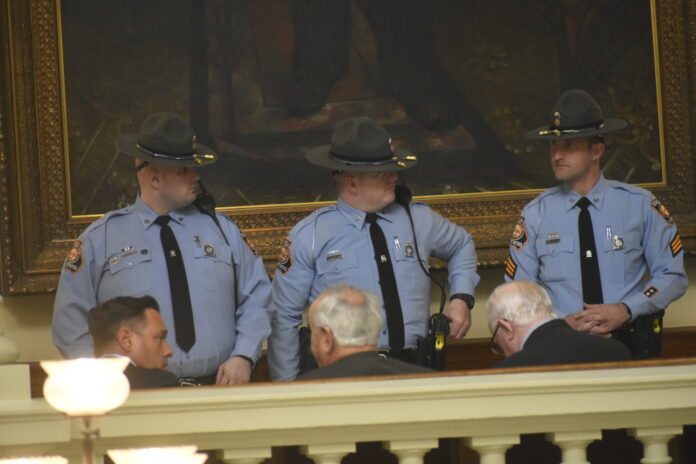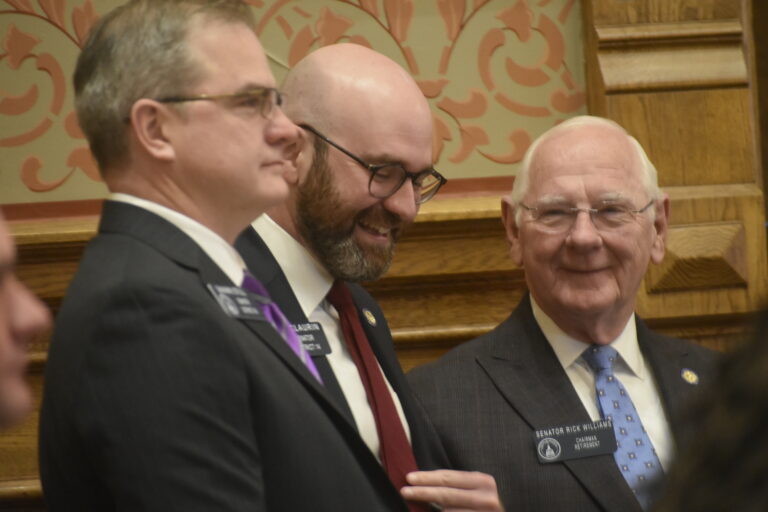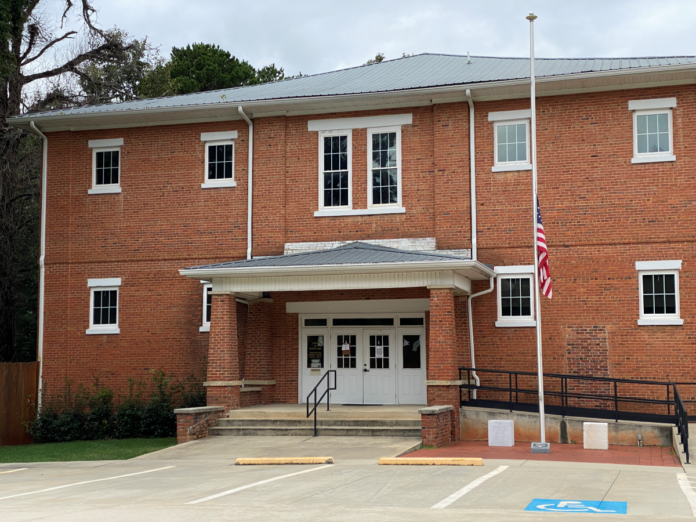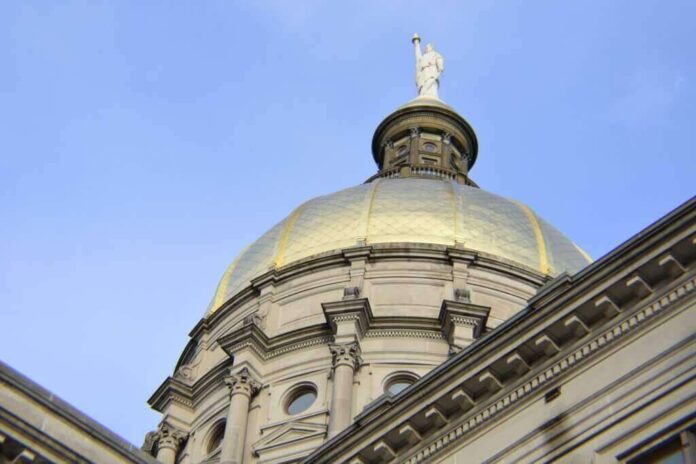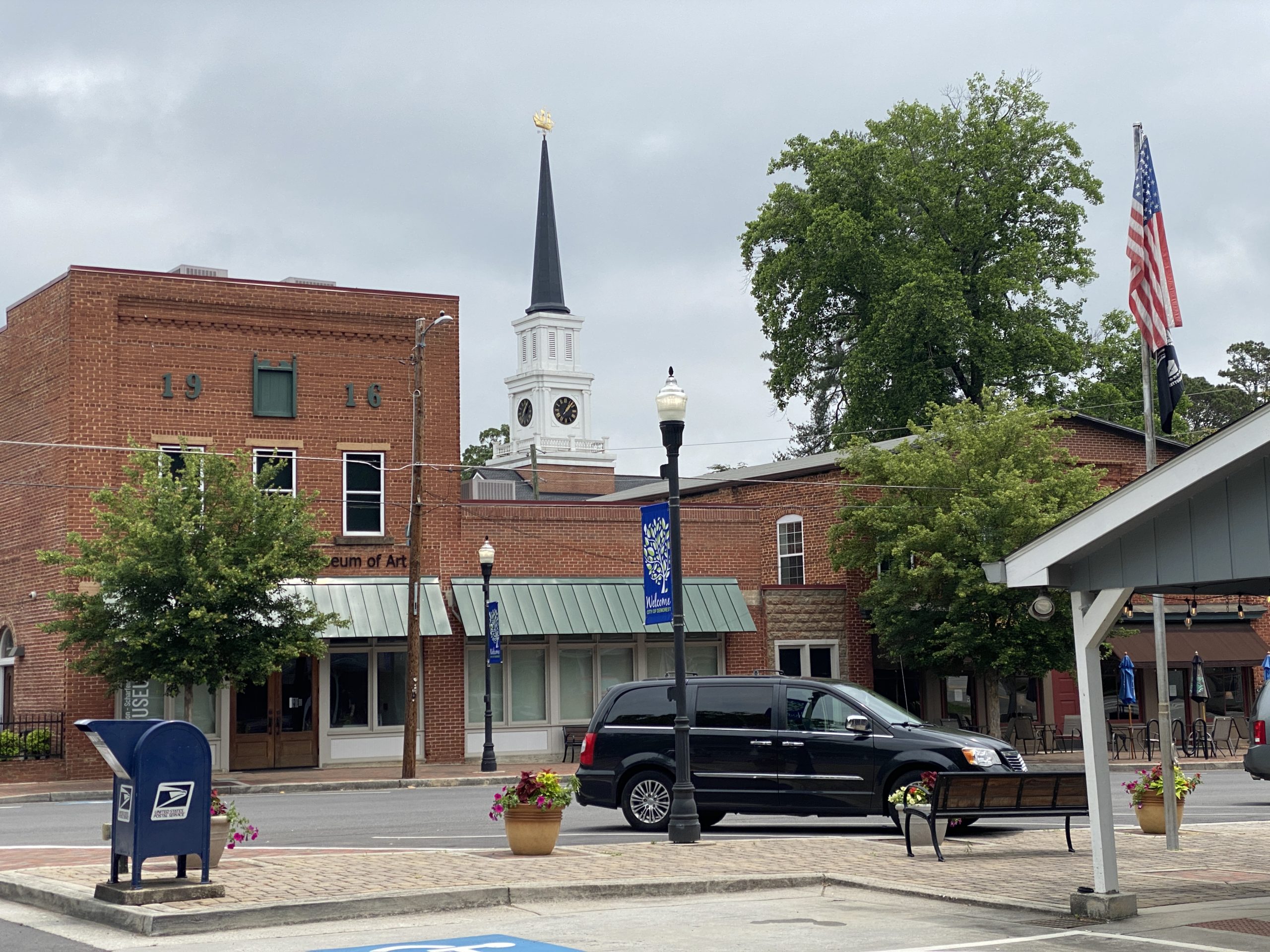WASHINGTON (GA Recorder) — On the cusp of a 2024 election season like none other in U.S. history, former President Donald Trump’s legal and political worlds are set to converge.
Trump’s lawyers on Tuesday will argue before a federal appeals court in Washington, D.C. that he is immune from prosecution for actions he’s accused of taking while in office — less than a week before Iowa Republicans congregate in town halls and church basements for their first-in-the-nation presidential caucuses.
If Trump disagrees with the decision at the appeals level, he is expected to escalate his case to the U.S. Supreme Court, whose decision could have wide-ranging implications if the justices take the case a likely possibility.
That request would mark the second time Trump has petitioned the high court ahead of the election. Last week Trump asked the justices — one-third of whom he appointed — to review the Colorado Supreme Court’s decision to strike his name from the ballot, citing his role on Jan. 6, 2021. The U.S. Supreme Court accepted the case and set legal arguments for Feb. 8.
Trump has appealed a similar decision in Maine but at a state court level.
Both Colorado and Maine concluded that Trump violated the 14th Amendment’s Civil War-era insurrection clause on Jan. 6, 2021, and therefore cannot seek elected office.
The nation’s 45th commander-in-chief, vying to again occupy the Oval Office, faces 91 criminal charges spread across four federal and state indictments, is the subject in a string of civil suits and sits in limbo over whether his name can remain on primary ballots in Colorado and Maine. At the same time, the primary season will kick off with Iowa’s caucuses on Jan. 15, quickly followed by the New Hampshire primary on Jan. 23 and a long lineup of state contests through the spring.
Polls show Trump holding a commanding lead in the Republican presidential primary, and the highly polarized political climate suggests he won’t lose much support among GOP voters even as his legal troubles intensify, experts said. Trump, buoyed by his supporters, has so far shown a remarkable talent for turning his scandals to his political advantage.
Even a small shift among general election voters, though, could have a significant impact on the general election, which may be decided by tens of thousands of votes in swing states like Arizona, Pennsylvania, Michigan, Georgia and Wisconsin.
While much lesser scandals have sunk presidential bids in previous eras, Trump’s message has been effective in a deeply divided country, Kathleen Dolan, a political scientist at the University of Wisconsin-Milwaukee, said in an interview.
Rather than seeing criminal allegations as disqualifying, Trump’s base views the prosecutions as evidence to support Trump’s claims of political corruption that only he can fix.
“He benefits enormously — and has benefited enormously since 2016 — from the polarization that exists in the country,” she said.
“There are people on the right who see him being persecuted by the government for political purposes,” she added. “If you believe that about him, and you believe that the Biden administration is trying to destroy him through the legal system, that’s going to help solidify his appeal.”
Representatives for the Trump campaign did not respond to a message seeking comment.
Presidential immunity?
Key oral arguments on Trump’s immunity are scheduled for Tuesday in the U.S. Court of Appeals for the District of Columbia Circuit. Court documents filed ahead of the date show that Trump’s attorneys will assert that the former president has criminal immunity for his “official acts.”
Trump posted Monday on his media platform Truth Social that he plans to attend the hearing.
A lower court in December denied Trump’s claim that he cannot be prosecuted on four federal criminal charges accusing him of working with co-conspirators to subvert the 2020 presidential election results that declared Joe Biden the winner.
U.S. District Judge Tanya Chutkan set Trump’s election interference trial for March 4, just one day before the election year’s so-called Super Tuesday, when more than a dozen states will hold their presidential primaries.
However, that trial date is likely to be postponed as the Supreme Court considers the question of presidential immunity, adding uncertainty to Trump’s legal and campaign calendars.
U.S. Special Counsel Jack Smith, who is leading two cases against Trump, had already requested the Supreme Court bypass the appeals level and quickly settle the question, but the justices declined.
Trump’s team of lawyers argued in their brief to the appeals court that language in the U.S. Constitution prevents Trump from criminal prosecution, maintaining the country’s “234-year unbroken tradition of not prosecuting Presidents for official acts, despite vociferous calls to do so from across the political spectrum, provides powerful evidence of it.”
Attorneys, including John Lauro, Todd Blanche and John Sauer, wrote in the 41-page brief filed Jan. 2 that because executive power is “exclusively vested in the President,” the judicial branch “cannot sit in criminal judgment” over his or her official acts.
They further lean on the Constitution’s impeachment judgment clause and the “principles of double jeopardy” to say that because Trump was impeached for his actions related to the Jan. 6 attack on the Capitol, but later acquitted by the Senate, he cannot be criminally tried on federal charges accusing him of interfering in the 2020 presidential election results.
Critics say those arguments are “misguided and without foundation,” as put by former Trump administration White House Special Counsel Ty Cobb, who was among 16 constitutional lawyers, former prosecutors, and former elected officials to file an amicus brief to the appeals court opposing Trump’s argument.
“This is a specious appeal done solely for delay,” Cobb told reporters Jan. 4 during a virtual press conference.
Norm Eisen, a former Obama White House official and co-counsel to the U.S. House Judiciary Committee during Trump’s first impeachment, told reporters that Trump’s argument for presidential immunity was “abhorrent to American law.”
“If Donald Trump were to be afforded the form of immunity that he seeks as a former president, the election to the presidency would serve as a get-out-of-jail-free card,” Eisen said. “That would allow the Oval Office to become the setting for a crime spree. That is not the American idea.”
Olivia Troye, former special advisor on homeland security and counterterrorism for Vice President Mike Pence, said the matter should be settled “as soon as possible.”
“We need a decision on this,” Troye, who joined Cobb and Eisen in signing the amicus brief, said Thursday.
Mixing court cases and fundraising
Trump has skillfully used the allegations against him as a boon to his campaign, repeating, without evidence, that the prosecutions are baseless attempts by the establishment to undercut his movement, political observers said.
Trump routinely comments on his criminal cases in fundraising pitches and other campaign material.
On Jan. 2, Trump’s campaign released a vitriolic statement after his lawyers filed a brief requesting to hold special counsel Smith in contempt of court for filing a motion in trial court while Trump’s presidential immunity appeal is pending.
Campaign spokesman Steven Cheung said in an email to supporters that Smith “unilaterally decided to disobey the stay order and continue with his harassing litigation, all done in order to keep parroting the pathetic Biden Campaign’s corrupt talking points in the name of election interference.”
“As a result, President Trump is seeking to hold Deranged Jack in contempt of Court,” Cheung wrote, using a derogatory nickname for Smith also often used by Trump.
While not one of his criminal cases, Trump’s campaign is also attempting to energize his base around keeping his name on the Colorado ballot. The campaign sent a message Jan. 5 urging voters to “Help win the Supreme Court battle to save your right to vote,” and asked them to contribute in amounts ranging from $24 to $250.
Because of the polarized political environment, most Republican primary voters are unlikely to be swayed by Trump’s legal problems, said Larry Jacobs, the director of the Center for the Study of Politics and Governance in the Hubert H. Humphrey School and the Department of Political Science at the University of Minnesota.
But that could change in a general election, where even a slight shift away from Trump among the relatively few swing voters could be determinative, he said.
“It’s a mistake to say, ‘Oh, Republicans are going to turn on Trump,’” Jacobs said. “No. The partisanship guarantees they won’t turn on Trump. But if you get a small percent in a divided country, that will be the difference.”
Commanding primary lead
The string of indictments against Trump last year appeared to do little to hurt his prospects in the Republican primary, where he still leads national polls by nearly 50 percentage points over his closest rivals, Florida Gov. Ron DeSantis and former South Carolina Gov. Nikki Haley.
Early-state nominating contests this month will provide the first firm data on where the race stands. Trump’s lead is slightly smaller in Iowa — about 30 percentage points — than in national surveys, and Haley holds an outside chance of winning New Hampshire’s primary eight days later, where polls show her within 5 points of Trump.
Part of Trump’s appeal in the primary is the sense that his renomination is inevitable, Jacobs said. If early results challenge that assumption, the shape of the race could change, he said.
Dolan noted that despite large polling leads, Trump has not yet won a single vote in the 2024 election cycle and there’s still some degree of uncertainty around primary results.
“Polls don’t vote,” she said.
“These early states can have some surprises,” Christopher Stout, a political scientist at Oregon State University, said. “Haley could win or someone could surprise Trump in Iowa or New Hampshire and change the framing.”
Yet more legal cases
The March 4 trial on election interference charges is the earliest scheduled criminal proceeding against the former president, but others could soon follow.
A four-count indictment in that case accuses Trump of seeking to overturn his loss in the 2020 election. Trump conspired to recruit false slates of electors, knowingly lied to the public about non-existent election fraud and encouraged supporters to obstruct the election certification in a violent attack on the Capitol on Jan. 6, 2021.
That case is just one of four pending criminal trials in which he’s a defendant.
All four indictments were charged last year and all could have trials begin in 2024. Three cases are scheduled to begin trials in the coming months, though those dates could change.
Trump is accused in New York state court of falsifying business records by reporting hush money payments as legal expenses.
According to that state indictment, Trump’s attorney and personal fixer, Michael Cohen, paid adult film star Stormy Daniels $130,000 to stay silent during the 2016 campaign about an alleged affair between her and Trump. Trump then repaid Cohen through his business, but recorded the transactions as legitimate legal expenses.
That trial is scheduled to begin March 25.
Trump also faces federal charges that he mishandled classified documents as president. That trial, brought in a federal court in South Florida, is scheduled to begin May 20, though U.S. District Judge Aileen Cannon has pushed back some pretrial deadlines that could indicate the trial itself will be delayed.
Trump was also indicted in Georgia state court on election interference charges. The Georgia indictment focuses on an alleged conspiracy to overturn the state’s election results. A trial date has not been set in that case, though the district attorney has requested an August date.
A conviction in any of the cases before the election would not disqualify Trump from the presidency.
But it’s an unsettled legal question if he could pardon himself in a second term that could lead to yet more time in the courts.
“The Supreme Court would have to decide whether or not presidential pardon powers in Article II are absolute,” Stout said. “Can an individual pardon themselves? I anticipate that would lead to a host of other legal fights that would happen after his election.”
Trump also faces a slew of civil lawsuits.
Trump and his company are snarled in a civil case in the New York State Supreme Court that could end with hundreds of millions in fines for the former president. The company stands accused of inflating the value of assets as a means to secure better standing with insurers and banks.
Meanwhile, a civil defamation trial against the former president is set to begin Jan. 16 in a Manhattan federal district court. Writer E. Jean Carroll, who in 2019 publicly accused Trump of raping her in the 1990s, sued Trump for defaming her after her accusation.
Trump tried to claim presidential immunity in the civil defamation case, but was denied in December.
A jury in May already found Trump liable for sexual abuse of Carroll stemming from a 1996 incident, which Trump denies. The court awarded Carroll $5 million in damages. Trump has appealed the decision.

